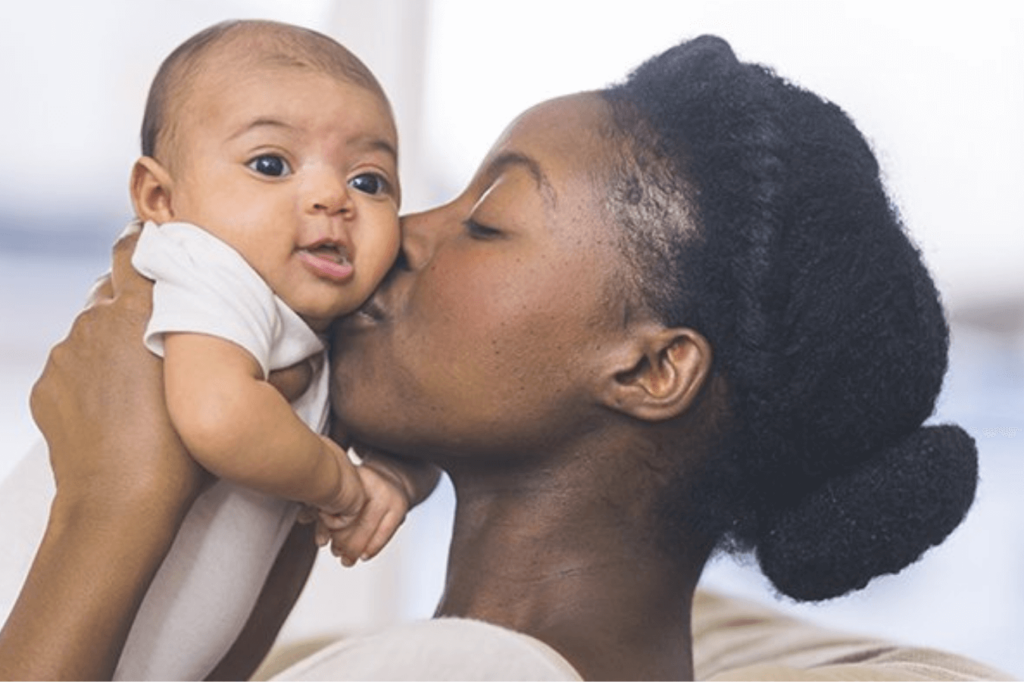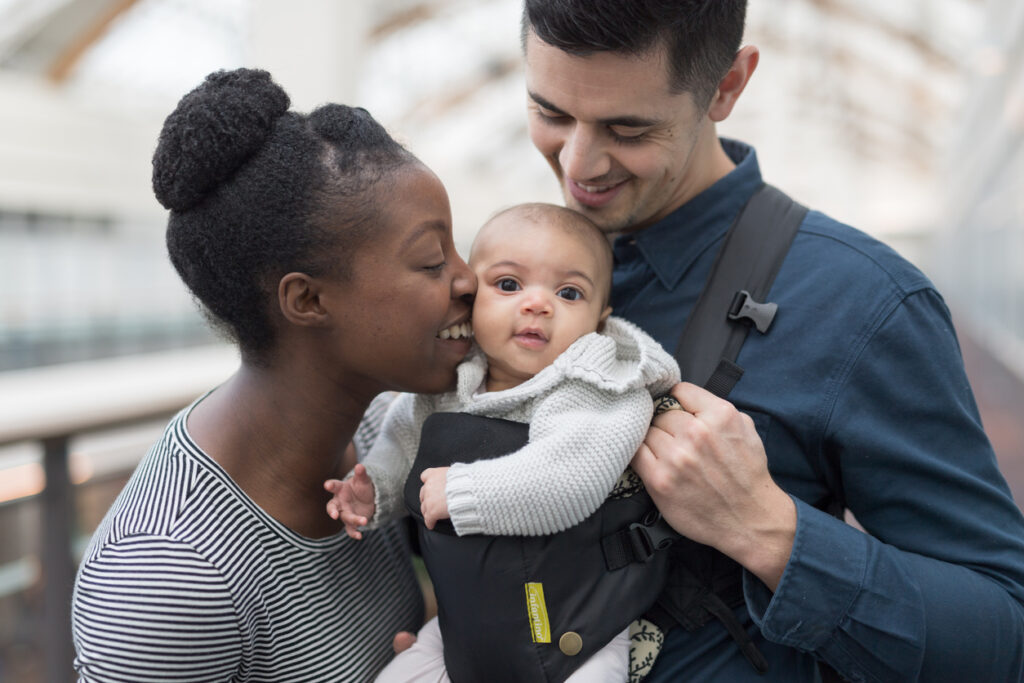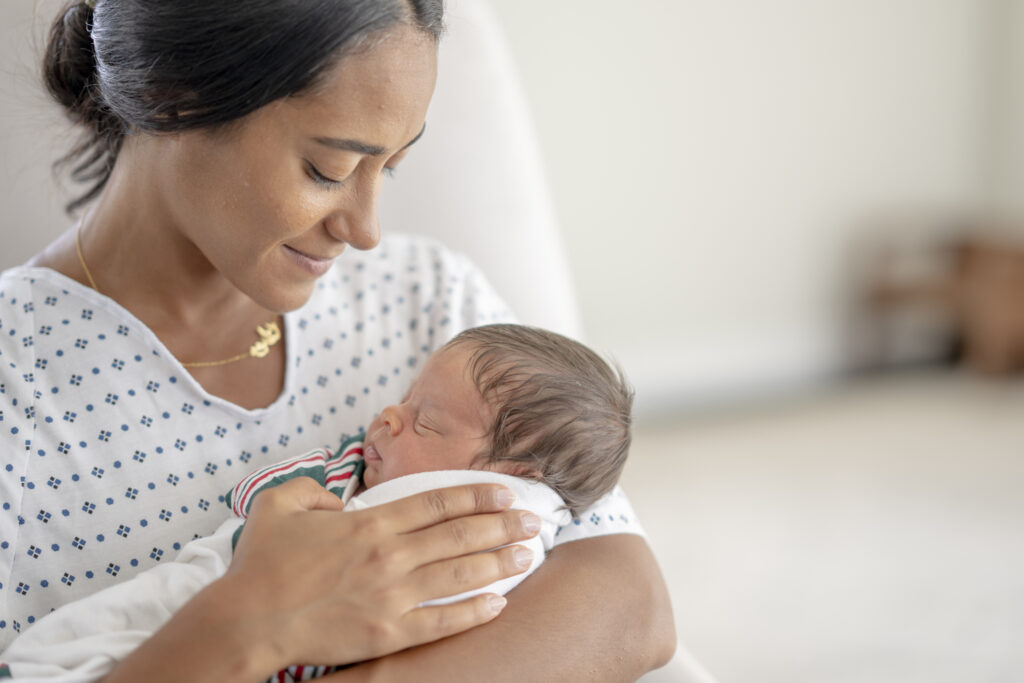A Centers for Disease Control and Prevention (CDC) study published in September found that pregnant women, especially Black and Latinx, are at increased risk of severe illness from COVID-19 compared to non-pregnant individuals. They are more likely to be admitted to intensive care units (ICU), receive invasive ventilation, and are at increased risk of death.
In response to COVID-19, several states, including New York, are working closely with the CDC to collect data on COVID-19 and pregnancy and implement guidelines to improve women’s outcomes and address disparities. Earlier this year, the New York COVID-19 Maternity Task Force submitted a report with recommendations to the governor, who is now implementing these actions.
Background
At the start of the COVID-19 pandemic, little was known about the impact of the disease on pregnant women. CDC and the American College of Obstetricians and Gynecologists (ACOG) have been monitoring data about pregnant women infected with the coronavirus and publishing updated guidance as new information comes to light. Recently, the CDC determined that pregnant women are at increased risk for severe illness from COVID-19. In response, last April New York Gov. Andrew Cuomo formed the COVID-19 Maternity Task Force.
In a recent report, the CDC summarized maternal and birth outcomes of hospitalized pregnant women with confirmed COVID-19. Between March and August, 598 hospitalized pregnant women tested positive for COVID-19:
- Approximately 55 percent were asymptomatic at the time of admission;
- 42.5 percent self-identified as Hispanic or Latino;
- 26.5 percent were non-Hispanic Black; and
- 20.6 percent had at least one underlying condition – asthma and hypertension were the most prevalent.
Additionally, symptomatic pregnant women were at an increased risk for ICU admission and mechanical ventilation. This new data continues to highlight how COVID-19 disproportionally impacts Black and Latinx populations and has implications for providing care to pregnant women during the pandemic.
New York’s Actions
New York’s COVID-19 Maternity Task Force report includes the following recommendations:
- Diversify birthing site options to support patient choice to deliver at a hospital or a birthing center;
- Authorize at least one support person to accompany an individual during labor, delivery, and recovery;
- Universally test all pregnant patients for COVID-19;
- Ensure equity by continuing to engage community members and community-based organizations;
- Increase messaging and education of pregnant patients about COVID-19 and perinatal care; and
- Encourage the New York State Department of Health to continue collaborating with academic institutions, regional perinatal centers, and medical organizations to review the impact that COVID-19 has on pregnancy and newborns.
Gov. Cuomo accepted all of the task force’s recommendations and New York’s Department of Health (DOH) has begun to implement the recommendations. The original executive order issued in March addressing having support people present during labor has been amended to include support during labor, delivery, and recovery, and now includes doulas as part of the care team.
Following the task force recommendations, hospital and health systems have rolled out universal COVID-19 testing for pregnant women, and DOH has approved two new temporary birthing centers as a result of the streamlined process to establish additional birthing centers during the pandemic. DOH will continue to accept applications for midwifery birth centers and provide emergency approvals during the public health emergency to ensure access to safe perinatal care and provide a variety of birthing options to parents.
DOH partnered with the University at Albany School of Public Health to conduct an early literature review on the impact of COVID 19 and pregnancy. Results were shared with staff from regional perinatal centers across the state for feedback and discussion. The final version of the literature review was posted on the New York State Perinatal Quality Collaborative website in June 2020.
The New York State Perinatal Quality Collaborative, in partnership with the American College of Obstetrics and Gynecology District II, hosted statewide interactive webinars on obstetrical care and implicit bias within the context of the COVID-19. Educational webinars related to the management of pregnant people during the COVID-19 pandemic featured state obstetric leaders sharing their experiences, successes, and challenges related to treating pregnant and postpartum people during the COVID-19 pandemic. Webinar participants were able to submit questions during the live event or prior to the event by email. In addition to the obstetric-focused webinars, the collaborative also hosted a neonatal-focused webinar relating to COVID-19 that addressed the testing and care of newborns. All webinars were recorded and each has been posted on the public section of the collaborative’s website.
Resources to Improve Maternity Care during COVID-19
Throughout its response to COVID-19, New York’s DOH has been committed to promoting health equity, especially as it relates to maternity care. It convened a workgroup that included community members to provide input and oversight into the development of education and messaging materials related to COVID-19, which is under development. A webinar conducted in partnership with the collaborative. on COVID-19 and Maternal Equity was held on June 5, 2020. This webinar features a panel discussion of maternity and racial justice experts led by Joia Crear-Perry, MD, FACOG, of the National Birth Equity Collaborative on the impact of COVID-19 on the birth equity and included stories of lived experience shared by a Rochester mother who had given birth during the pandemic and a community health worker supporting pregnant women in the Bronx.
As states continue to confront COVID-19 and its impact on health care delivery, it will be important for states to consider new CDC data on pregnant women and best practices for how to protect women and children, especially pregnant women of color. The National Academy of State Health Policy will continue to track state actions on COVID-19 and pregnant women. For more information on COVID-19 and pregnancy explore this NASHP Infographic: How State Medicaid Programs Can Use Telehealth to Serve Pregnant Women during COVID-19 and blog, States Implement Strategies to Safeguard Pregnant Women during the COVID-19 Pandemic.



